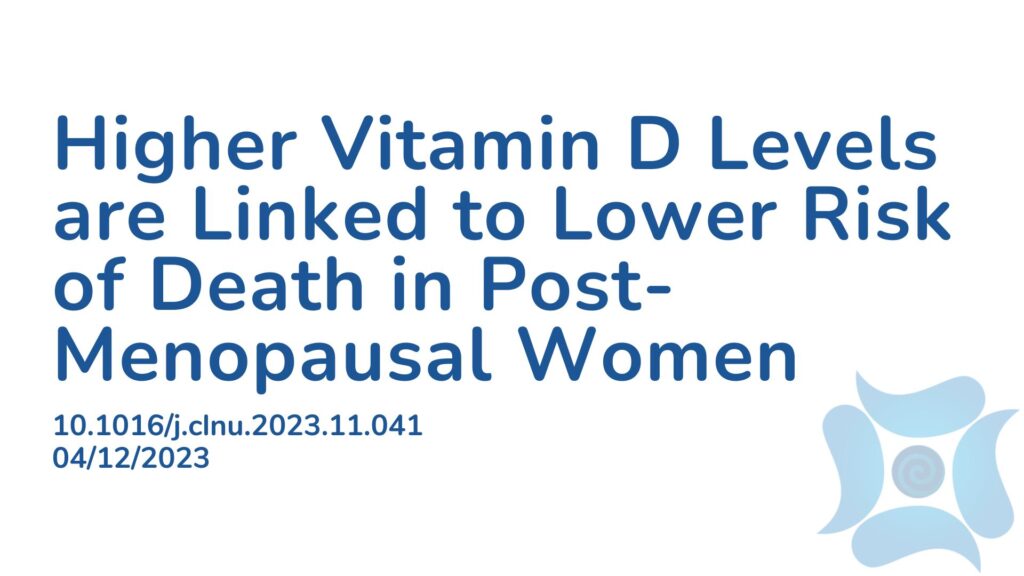Summary:
This study investigated the relationship between serum vitamin D levels and mortality in post-menopausal women. Using data from the NHANES study and a follow-up period of 8.3 years, the authors established there were 1905 deaths from all causes, 601 from CVD, and 385 from cancer. After adjusting for various confounding factors, higher serum vitamin D levels were significantly associated with a decreased risk of mortality from all causes. Participants with higher vitamin D levels also had a lower risk of cancer and CVD mortality compared to those with lower vitamin D levels. The authors therefore concluded that higher serum vitamin D concentrations were significantly associated with a reduced risk of all-cause mortality, CVD mortality, and cancer mortality in postmenopausal women. These findings suggest that maintaining adequate vitamin D levels may contribute to the prevention of premature death in this population.
Abstract:
Purpose: Current evidence on the association of serum vitamin D with mortality in postmenopausal women is limited and inconsistent. Therefore, the purpose of this study was to examine the relationship between serum vitamin D and mortality in postmenopausal women.
Methods: In this study, we used data from the NHANES (2001–2018) and conducted a multivariate Cox regression model to examine associations between serum vitamin D and all-cause mortality, cardiovascular mortality (CVD), and cancer mortality.
Results: In a median follow-up period of 8.3 years, 1905 deaths of all causes were reported, 601 were due to CVD, and 385 deaths were due to cancer. After multivariable adjustment, higher serum vitamin D levels were significantly associated with a reduced risk of death. Compared to participants with lower vitamin D levels (<25 nmol/L), those with higher vitamin D levels (≥75.0 nmol/L) had a lower risk of all-cause mortality (hazard ratio 0.60, 95 % confidence interval 0.49 to 0.74), a lower risk of cardiovascular mortality (0.51, 0.35 to 0.74), and a lower risk of cancer mortality (0.43, 0.28 to 0.67). Moreover, we observed an L-shaped dose–response relationship of serum vitamin D levels with all-cause mortality, and cancer mortality, with this inflexion point being 55.9 nmol/L, and 51.2 nmol/L, respectively.
Conclusions: Higher concentrations of serum vitamin D substantially correlated with a reduction in mortality risk from all-cause, CVD, and cancer in postmenopausal women. These results imply that upholding adequate vitamin D levels may help prevent premature death in postmenopausal women.
Article Publication Date: 04/12/2023
DOI: 10.1016/j.clnu.2023.11.041




